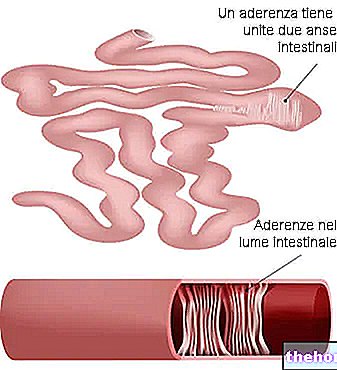Until now it was always thought that free radicals were harmful to the body.
A new study, however, could overturn this thesis or at least make it less absolute, going so far as to argue that, not only free radicals would not always be harmful to the human body, but indeed, in some cases they would be very precious.
In particular, they would help the brain to remain able throughout life to adapt to the changes and evolutions it undergoes, and to age healthily.
and characterized by the presence of a free electron which makes them particularly reactive and ready to interact with other molecules.
This mechanism is responsible for creating chemical reactions that cause cellular deterioration in the body.
This is the famous oxidative stress, which accelerates the physiological cellular aging and favors the onset of other related problems and diseases.
(DZNE) and the Dresden Center for Regenerative Therapies (CRTD).
The news was given by Cell Stem Cell magazine, which published it exclusively.
Although its reliability has not yet been validated by the human test, what has emerged is already quite relevant.
A trigger for neurogenesis
To carry out the research, the team of scientists focused on the "hippocampus," an area of the brain located under the cerebral cortex, in the inner region of the temporal lobe, and considered the center of control for learning and memory.
New nerve cells are constantly being created by the brain throughout life, even in adulthood. This so-called adult neurogenesis helps the brain adapt and change over the years. It happens not only in mice but also in humans, ”explains Prof. Gerd Kempermann, speaker at the DZNE center in Dresden and head of the research team at the CRTD.
New nerve cells emerge from the stem cells. 'These precursor cells are important for neuroplasticity, which is the brain's ability to adapt,' says the Dresden scientist, who and his colleagues have now gained new insights into the processes underlying the formation of new nerve cells.
The team of researchers was in fact able to show that neural stem cells, compared to adult nerve cells, in mice contain a high degree of free radicals, especially when they are in a dormant state and do not divide and develop into nerve cells.
The current study shows that an increase in the concentration of free radicals makes stem cells ready to divide. The oxygen molecules, in short, would act as a switch that sets in motion neurogenesis, and therefore the regenerative capacity of the brain.
Important free radicals also in the phase of grafting and progression of Alzheimer's, of which another study has identified the brain mechanisms that allow it to resist neuro degeneration.
oxidative, "an extremely negative event because it can generate nerve damage and trigger aging processes", as Prof. Kempermann reiterates.
Precisely this aspect more than others until recently has ideally placed free radicals in the box of harmful elements.
But as the researchers of the new study point out, it was only a partial view. "For some time now, thanks to other studies and full-blown scientific evidence, it is known that there is also a positive and useful side of them".
Today's novelty, however, is "another." What we did not expect and it is surprising is the fact that the stem cells in our brains not only tolerate extremely high levels of radicals, but also use them to improve their function. "
The role of antioxidants is always valid
There are elements in nature considered the scavengers of free radicals. These are the well-known antioxidants, famous for their function of contrasting oxidative stress.
These substances are considered important components of a healthy diet, they can be found in fruit and vegetables and their consumption is widely recommended, even in the face of this new discovery.
"The positive effect of antioxidants has been amply demonstrated over the years and is not in the least questioned by our study. Furthermore, we should also be careful in drawing hasty conclusions for humans based solely on laboratory studies," Kempermann points out. in a very just and prudent awareness of the fact that the study led by him is currently only in a first phase.
“Our findings at least suggest that free radicals are not fundamentally harmful to the brain, and this is already very good news. Most likely, indeed, they work in silence to ensure that the brain remains in excellent condition throughout life and maintains the ability to adapt to it and age in a healthy way ».





-cos-sintomi-e-primo-soccorso.jpg)










.jpg)











